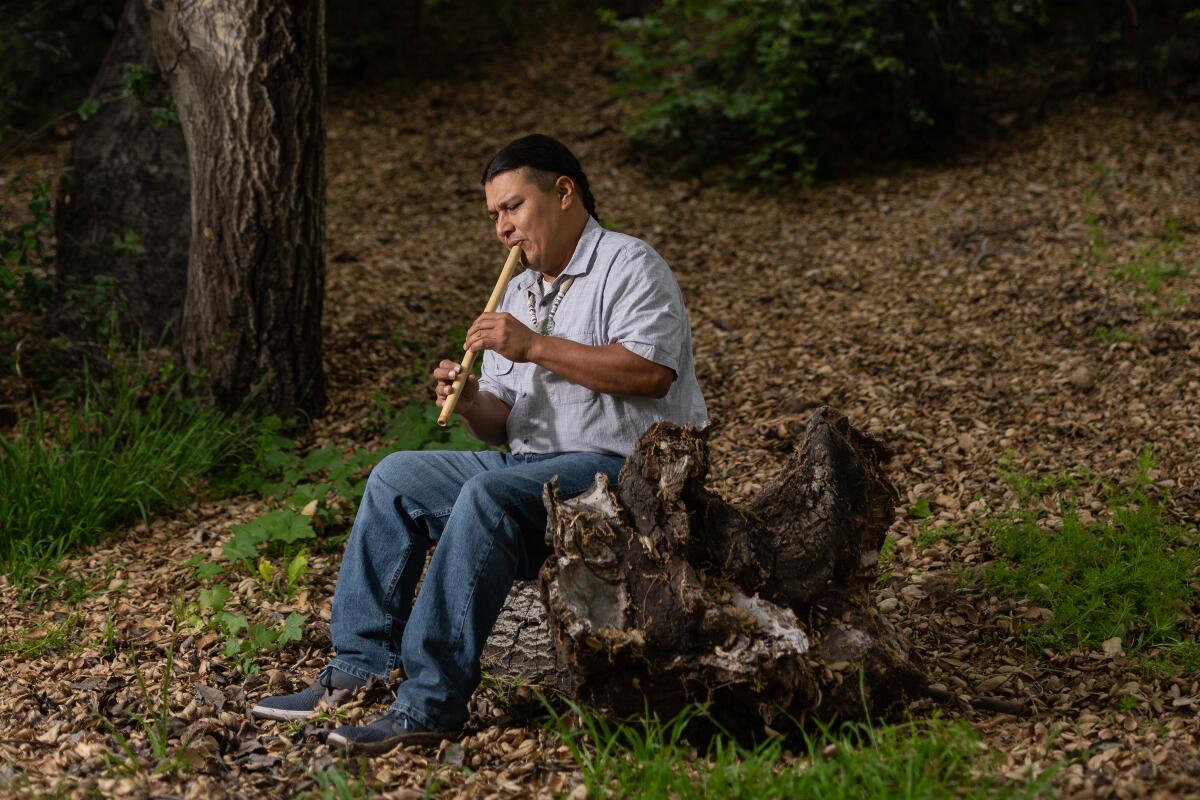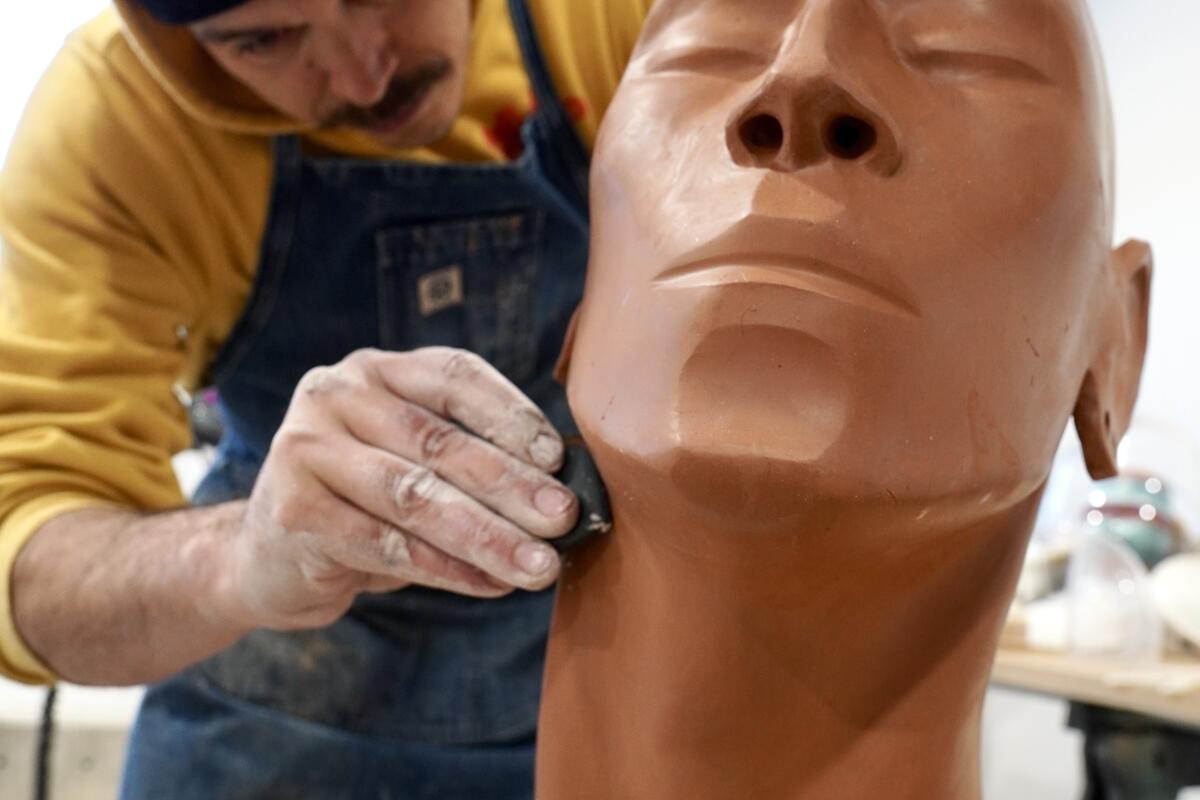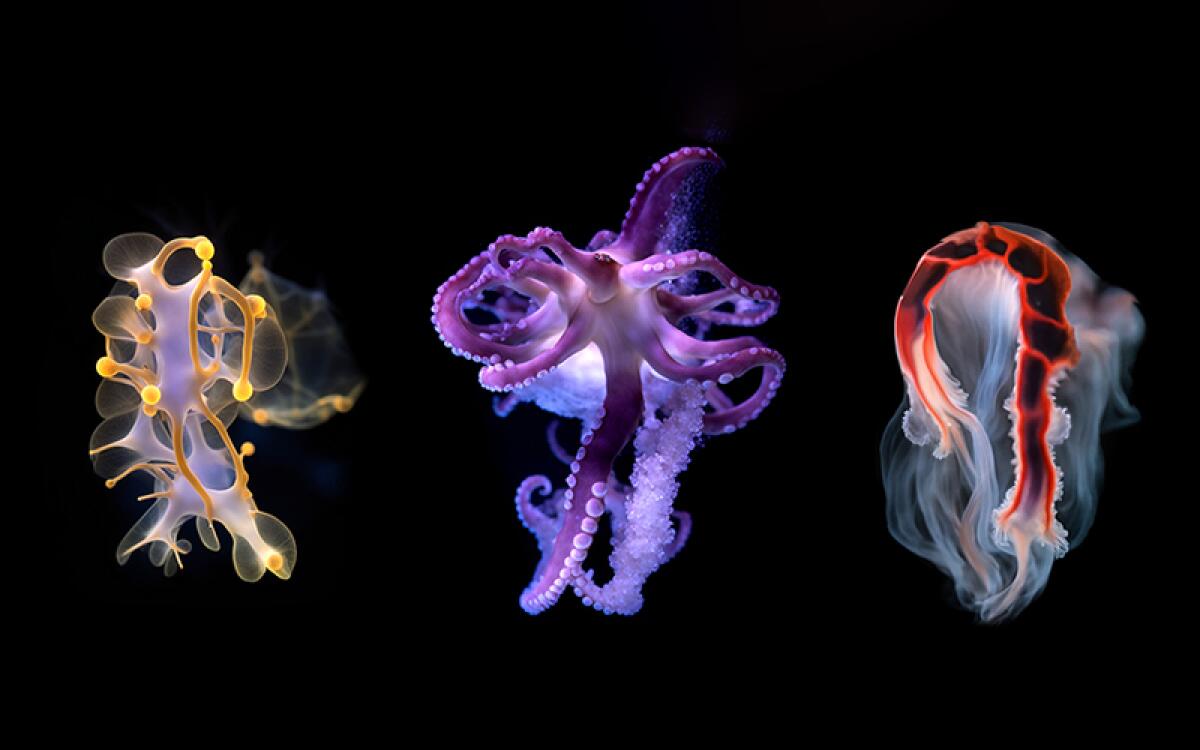
The busy person’s guide to PST ‘Art & Science Collide’ exhibitions
- Share via
PST Art, formerly known as Pacific Standard Time, is like the Olympics of art for Southern California. Dozens of institutions come together to celebrate culture in a dizzying series of exhibitions and events that this year are centered on the theme “Art & Science Collide.” The viewing options can feel overwhelming with destinations scattered across our region’s sprawl, so we have shortlisted some programs for you here. Look for updates during the run of PST Art, and share dispatches from your excursions at entertainment@latimes.com. Happy PST-ing!
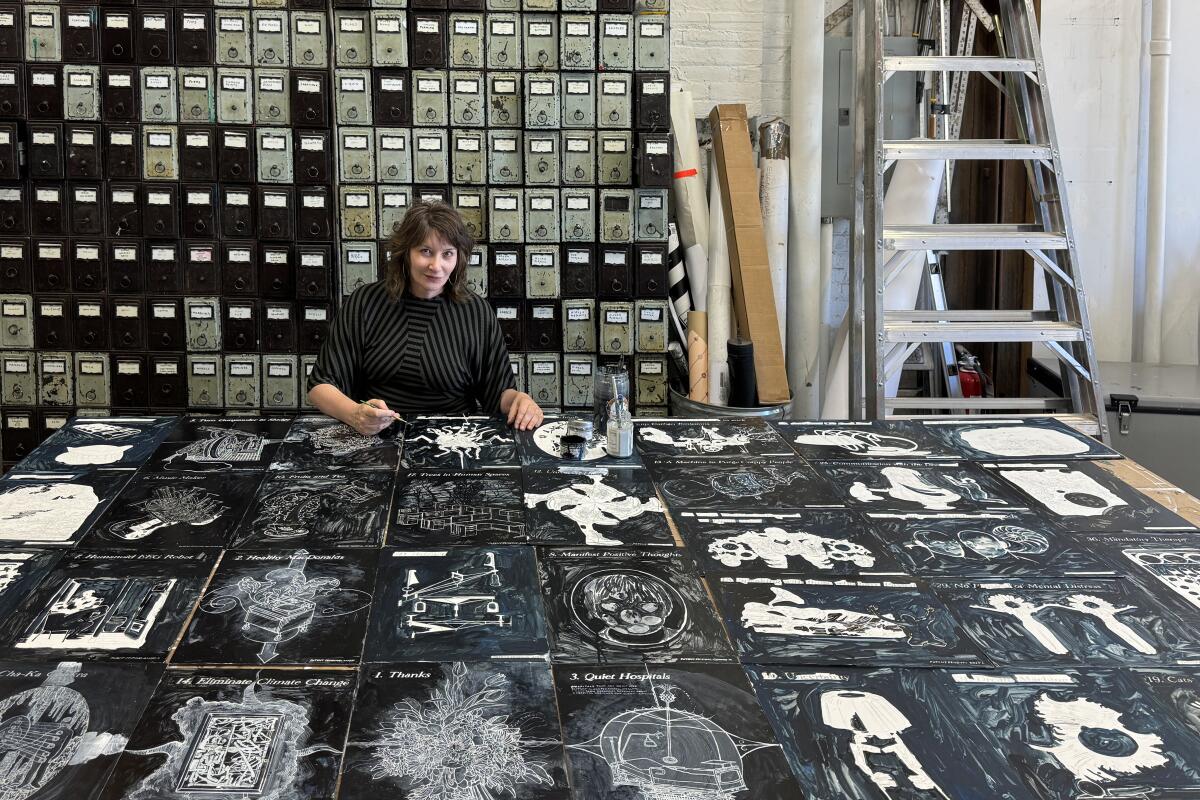
Los Angeles Central Library, ‘No Prior Art: Illustrations of Invention’
The library’s role in research and inspiration takes center stage in “No Prior Art,” a title that borrows from a legal term in patent applications. Featuring about 150 sculptures, inventions and other works, the exhibition showcases the creativity of artists (with an emphasis on Californians). Walk by a lighted monolithic sculpture inspired by Lewis H. Latimer, the son of an escaped slave whose patents made electric lighting commercially viable. Learn more about L.A.-based arts printer Mixografia’s patented process that adds texture and relief to prints. Add far-out ideas on how to achieve utopia in a crowd-sourced fictional patent drawing by Ellen Harvey. “No Prior Art” includes more than 50 free events through the Los Angeles Public Library.
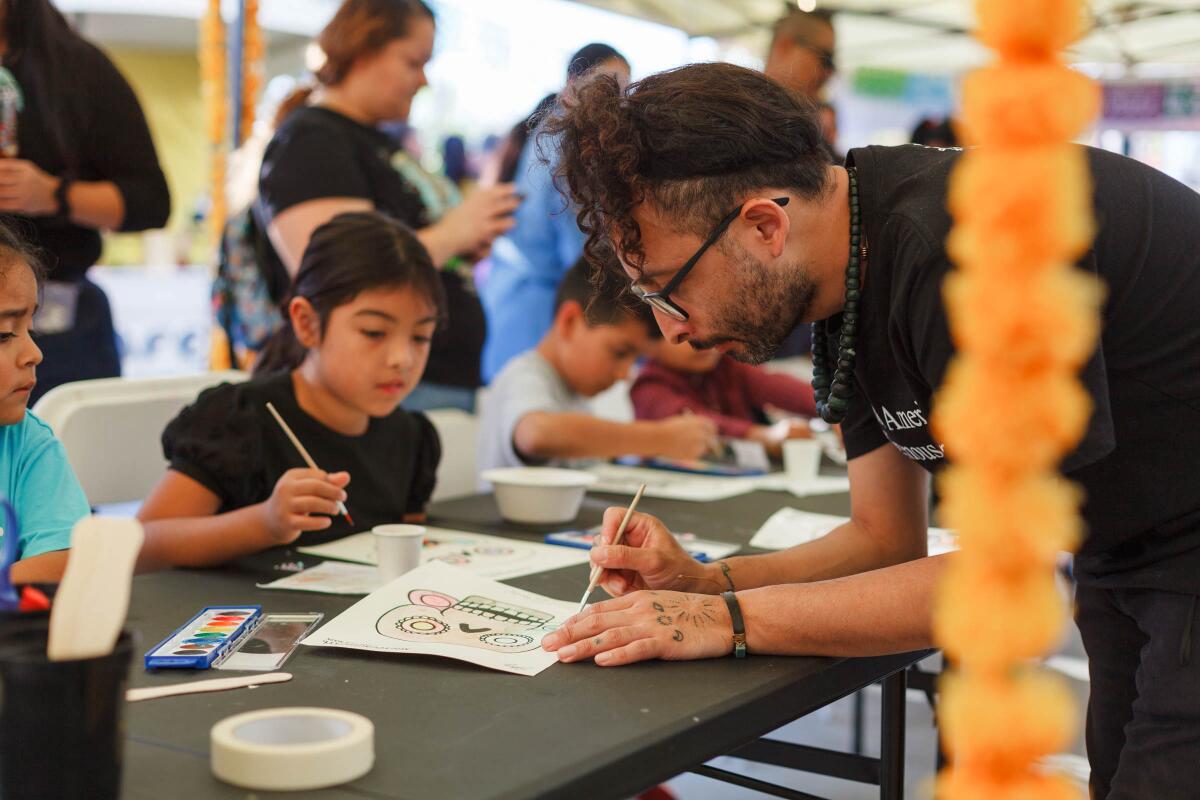
LA Plaza de Cultura y Artes
LA Plaza de Cultura y Artes is one of three community hubs for PST operating throughout the festival. LA Plaza is collaborating with community partners to present free public programs that highlight the intersection of art and science. Interactive, family-friendly activities and presentations examine topics such as food sovereignty, Indigenous sciences, sustainable gardening, science exploration, photography, screen printing, stamp making and the creation of zines.
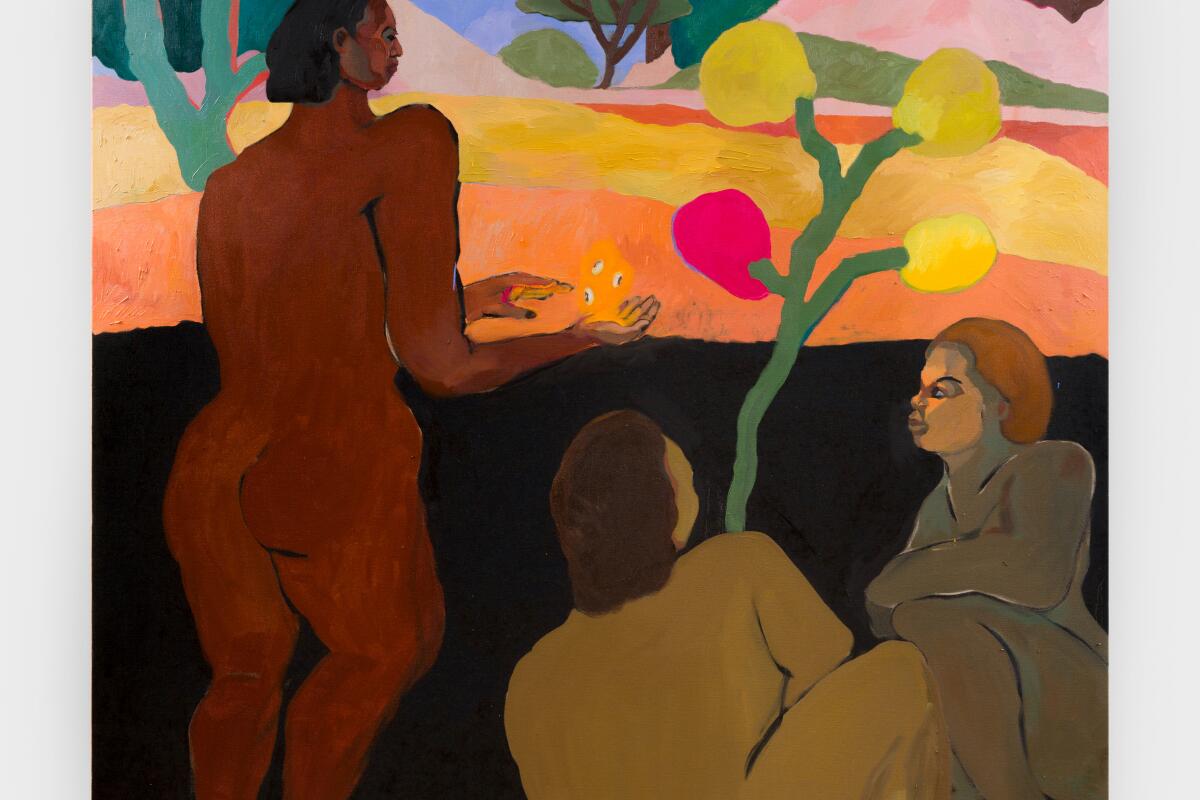
California African American Museum, ‘World Without End: The George Washington Carver Project’
Dive into the fascinating life, art and work of George Washington Carver, who not only pioneered plant-based engineering, but was also one of the country’s foremost advocates for sustainable agriculture. This exhibition showcases Carver’s art and sustainable paint samples alongside his laboratory equipment, and highlights artists influenced by his practice, including Los Angeles-based assemblage artist Judson Powell, whose research helped inform the exhibition.
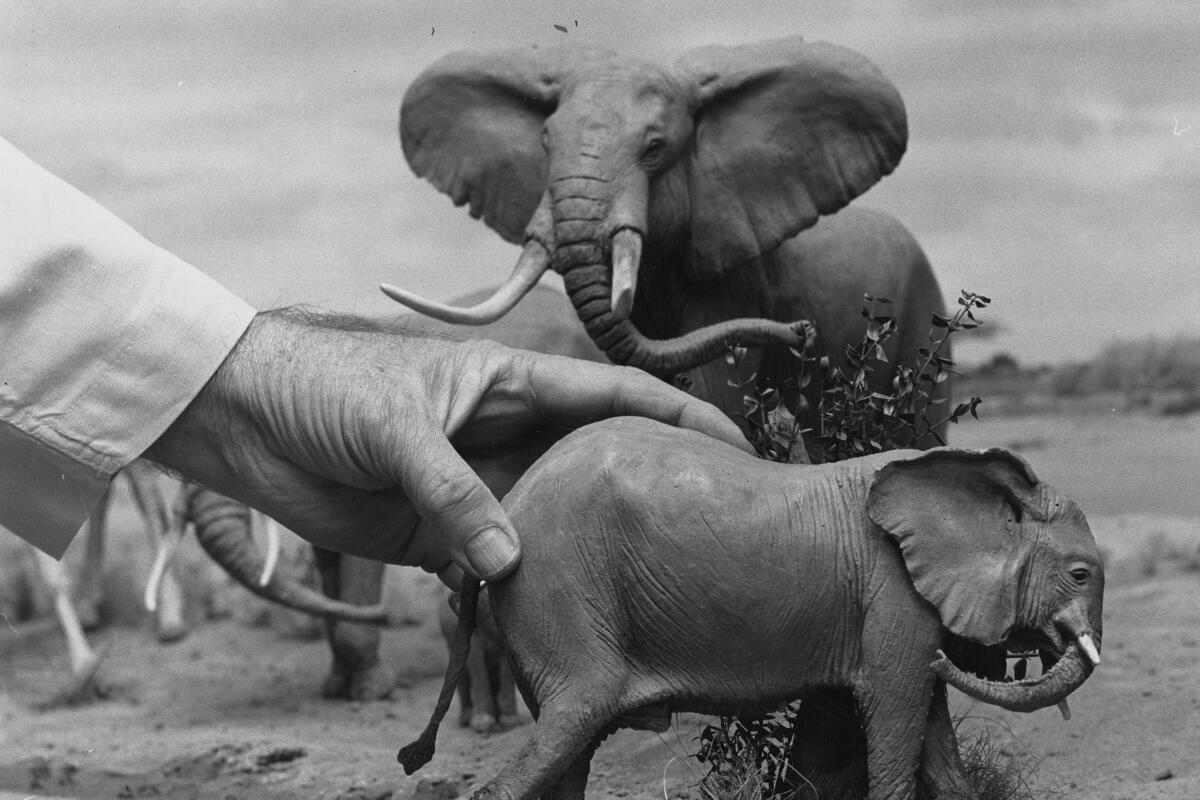
Natural History Museum of Los Angeles County, ‘Reframing Dioramas: The Art of Preserving Wilderness’
In honor of the 100th anniversary of NHM’s diorama halls, the institution is restoring and reopening a space that has been closed for decades. The new immersive installations seek to contextualize the ways that dioramas use art and science to showcase the breathtaking biodiversity of Earth. A history of the halls is also on offer, including the ways that diorama program staff work to update the museum’s more than 75 habitats to address issues of ecology, conservation and colonialism.
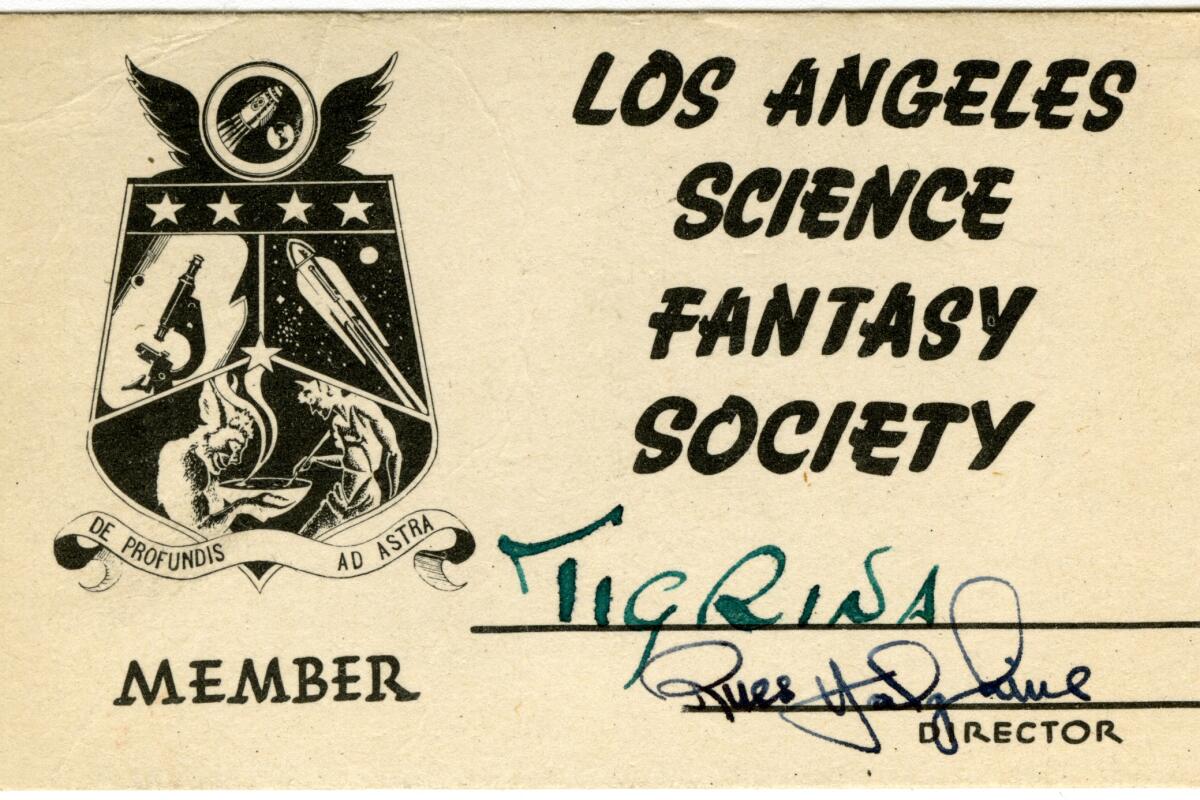
USC Fisher Museum of Art, ‘Sci-Fi, Magick, Queer LA: Sexual Science and the Imagi-Nation’
When social norms were too restrictive, building one’s own worlds was an answer. Organized by the ONE Archives at USC Libraries, “Sci-Fi, Magick, Queer L.A.” shows how the city’s science fiction and occult communities foregrounded the LGBTQ movement through photographs, magazine covers, costumes and other creative expression. L.A. Science Fantasy Society, the Ordo Templi Orientis at the Agape Lodge and other progressive communities from the late 1930s through the 1960s are highlighted along with artists and scientists like Jim Kepner, Marjorie Cameron and Kenneth Anger. A planned Halloween cosplay event brings their shrouded worlds to life.
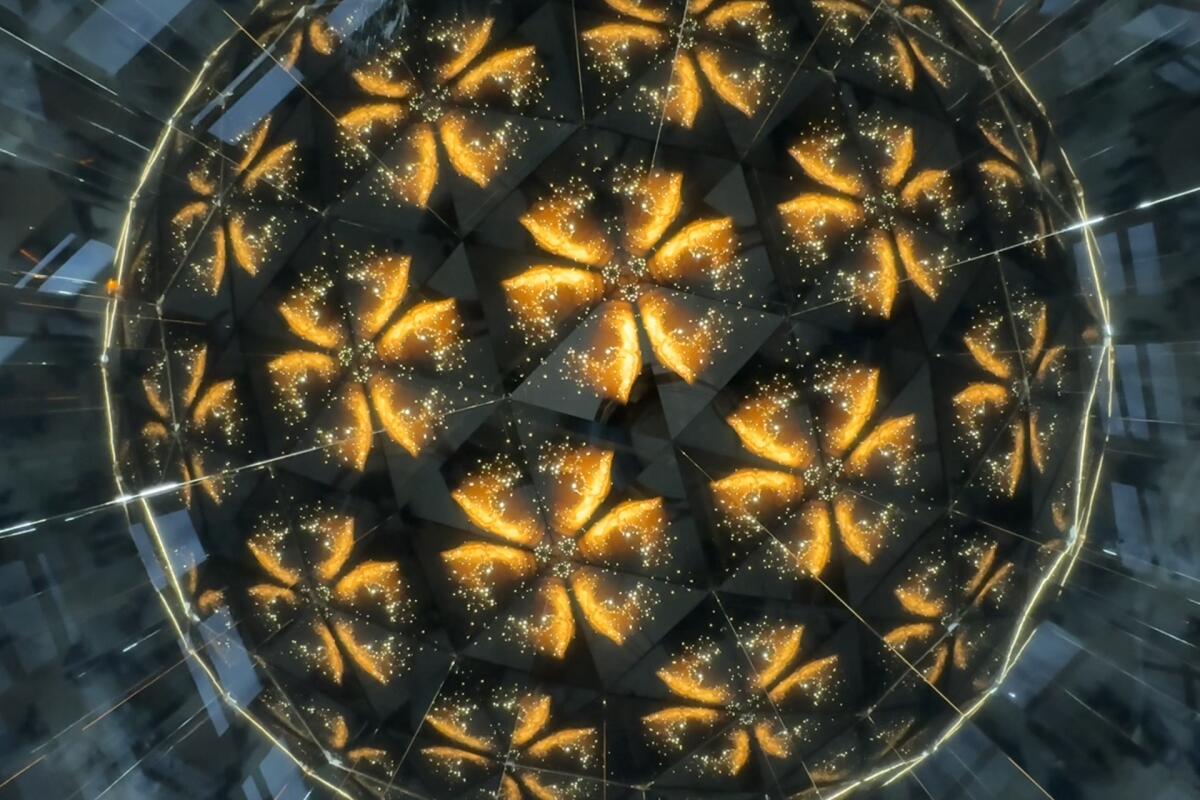
Geffen Contemporary at MOCA, ‘Olafur Eliasson: Open’
The Icelandic-Danish artist is known for his monumental installation art, which often harnesses natural elements to striking effect. Eliasson’s upcoming site-specific exhibition, “Open,” has been tailor-made for MOCA’s Geffen Contemporary using large-scale optical devices that will reflect the architecture of the building in relation to the atmosphere of the city. Light, air, color and geometry will combine for a unique sensory experience.
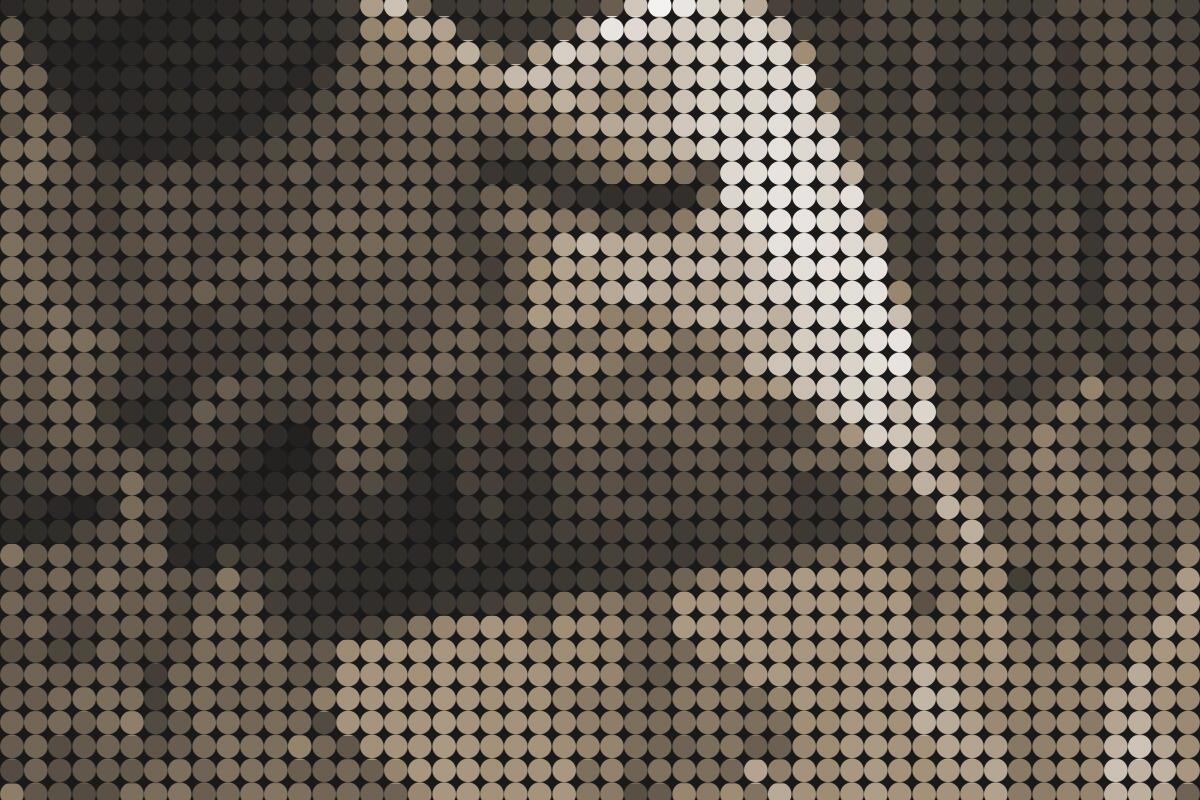
Luckman Gallery at Cal State L.A., ‘Sinks: Places We Call Home’
“Sinks: Places We Call Home” explores the toxic legacy of the shuttered Exide battery plant and the former Athens Tank Farm in Willowbrook on communities of color in Southeast and East Los Angeles. Curated by Marvella Muro, the exhibition is part years-long community project and part creative output that features the work of Maru García and Beatriz H. Jaramillo. García’s works — abstract mosaics and a soil sculpture among them — explore lead contamination, while Jaramillo’s curtains silkscreened using tar from the La Brea Tar Pits connect to the petroleum-rich history of Los Angeles. “Sinks” aims to raise awareness of environmental injustice and calls for accountability.
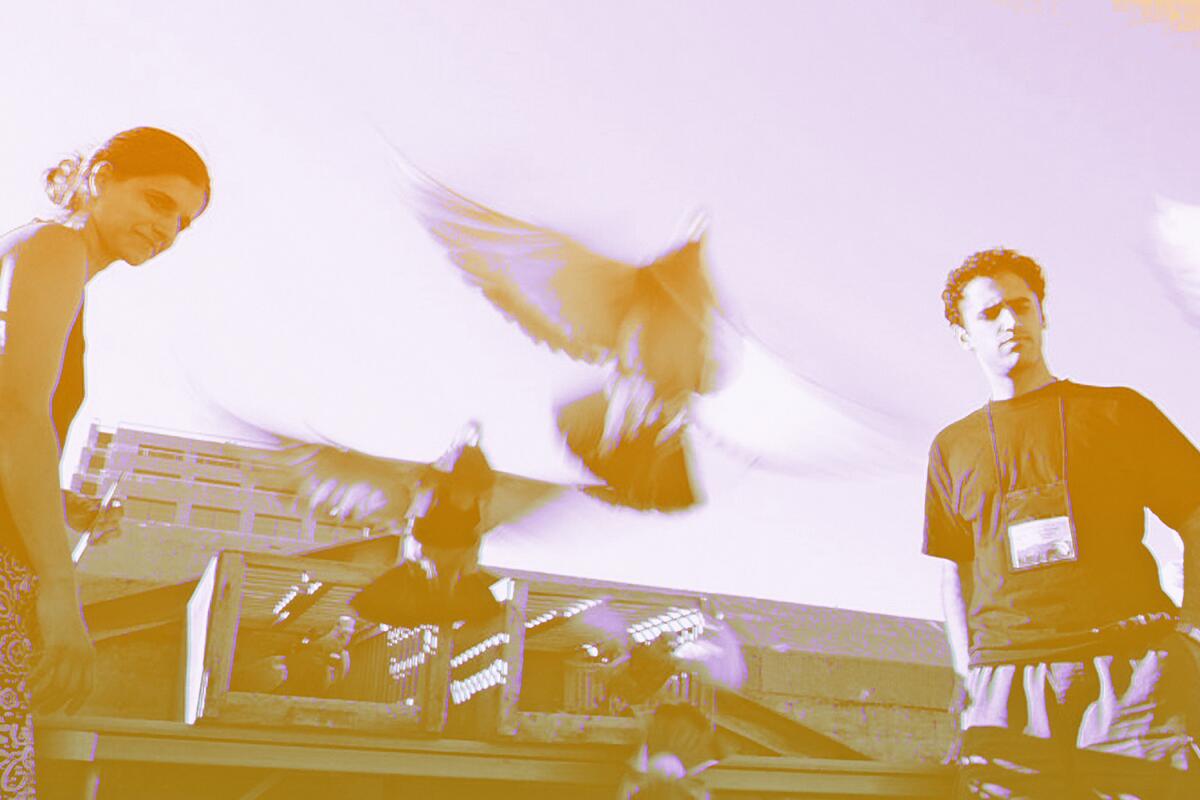
Los Angeles Municipal Art Gallery, ‘Beatriz da Costa: (Un)disciplinary Tactics’
Da Costa’s interventions shed a critical light on the role and cost of technology in human life. Los Angeles Contemporary Exhibitions revives many of her thought-provoking projects including a demonstration garden filled with cancer-fighting plants, herbs and fungi, which will be accompanied by a cooking workshop; an air-pollution monitoring system will run with the aid of pigeons.
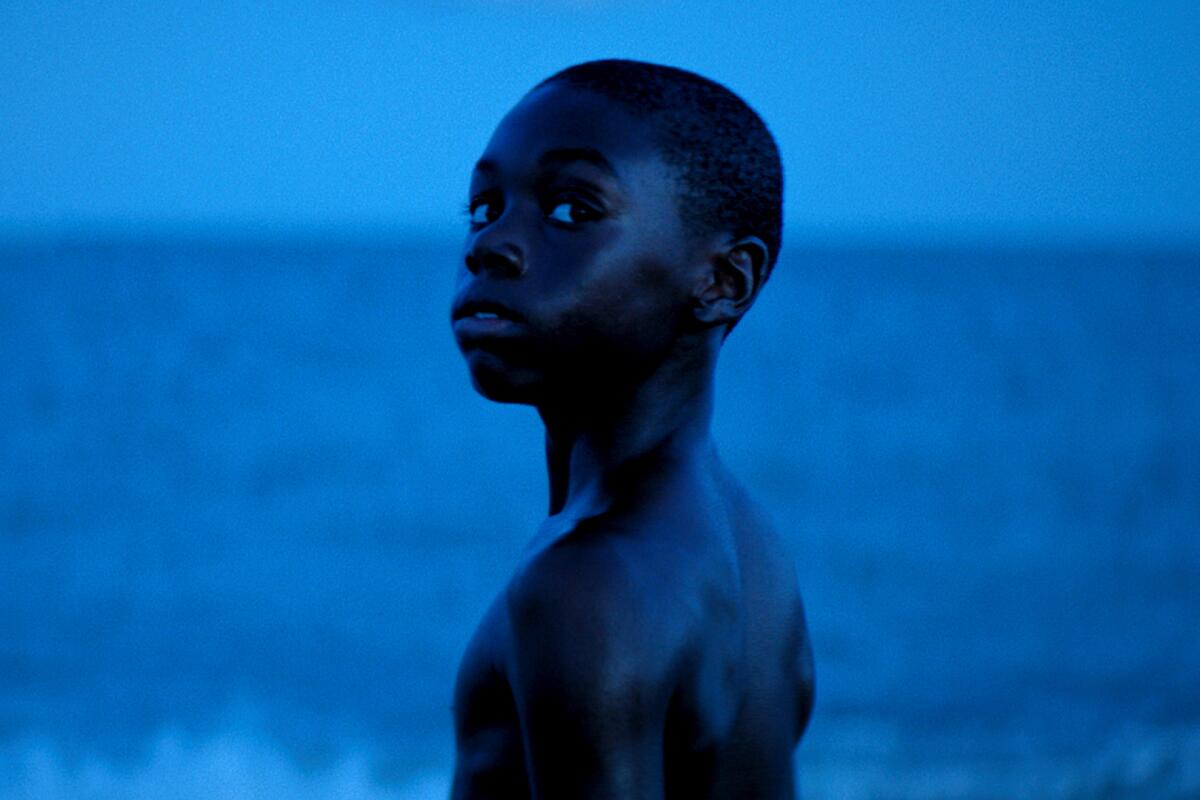
Academy Museum of Motion Pictures, ‘Color in Motion: Chromatic Explorations of Cinema’
The role of color in film is explored in its varied glory, including the ways it impacts viewers emotionally, and the science and technology of bringing it to the cinematic experience. The history of color will be told through a wealth of ephemera including film clips, photographs, posters, production cels and color charts, as well as iconic props and costumes such as an outfit worn by Kim Novak in Alfred Hitchcock’s “Vertigo.” A special section of the exhibit will be devoted to the role of women in creating color for film via hand-coloring and stenciling as well as in Disney’s ink and paint department.
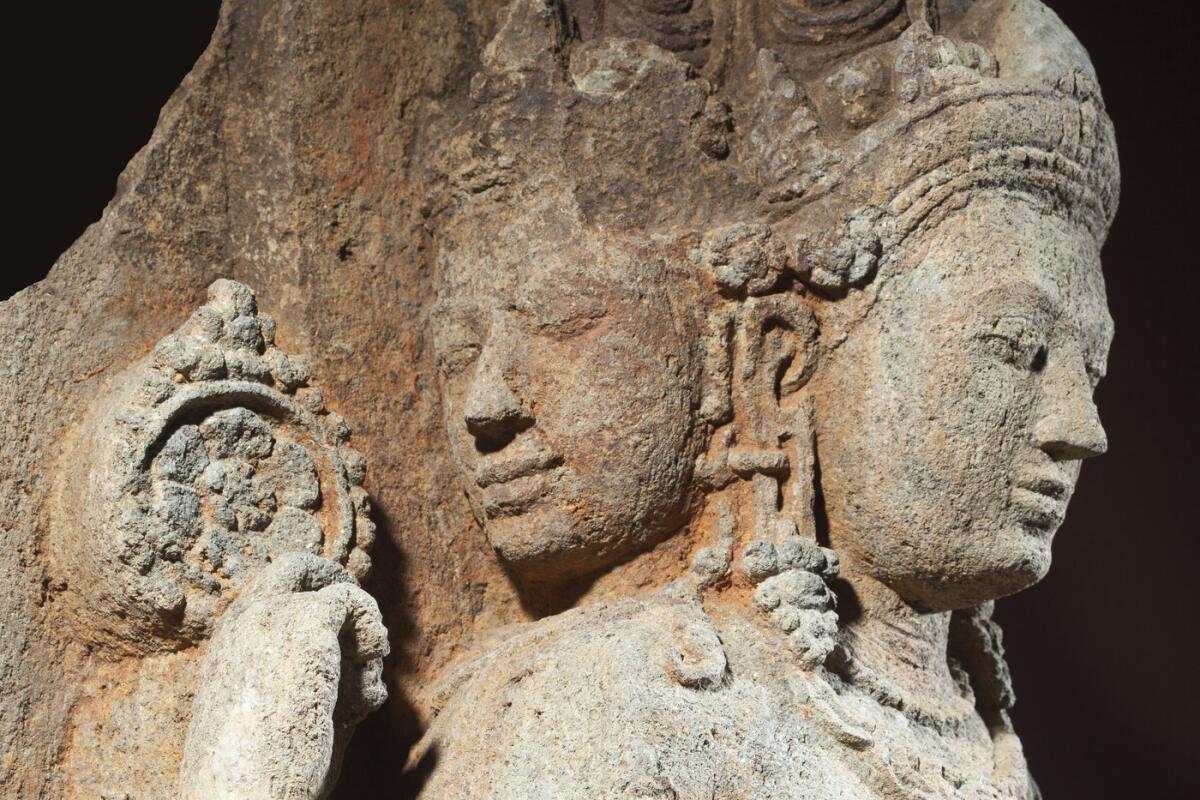
Los Angeles County Museum of Art, ‘Mapping the Infinite: Cosmologies Across Cultures’
Created in collaboration with scientists at the Carnegie Observatories and the Griffith Observatory, this exhibition features artworks throughout history and across cultures that seek to explain those ever-elusive questions: Who are we and how did we get here? Whether it be an ancient view of heaven and hell, a scientific exploration of the cosmos, or devices that sought to trace our movement through space and time, artists, artisans, scientists and others have sought to creatively excavate the essence of our existence.
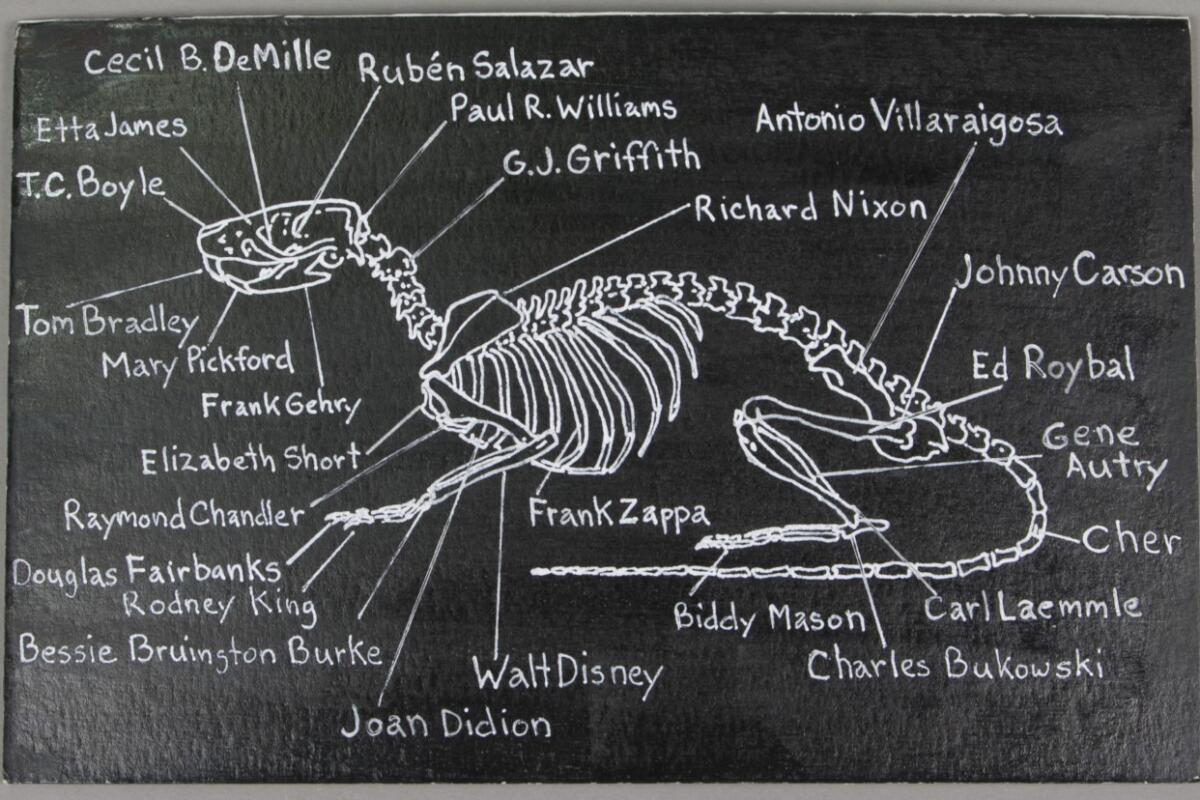
La Brea Tar Pits and Museum, ‘Mark Dion: Excavations’
An unexpected peek behind the curtain at the work that goes into sustaining and expanding the collection at the La Brea Tar Pits. Dion used an extended residency at the institution to shed new light on its core practices. The artist assisted with excavations, cleaned fossils, observed the work of a taxidermist, scoured the archives and interviewed curators and floor staff to create a rare sense of intimacy with the museum’s inner workings. New work by Dion is also on display, including a 10-foot-long sculpture of a fossilized pack rat skeleton, and six drawings of mammal skeletons native to the tar pits.
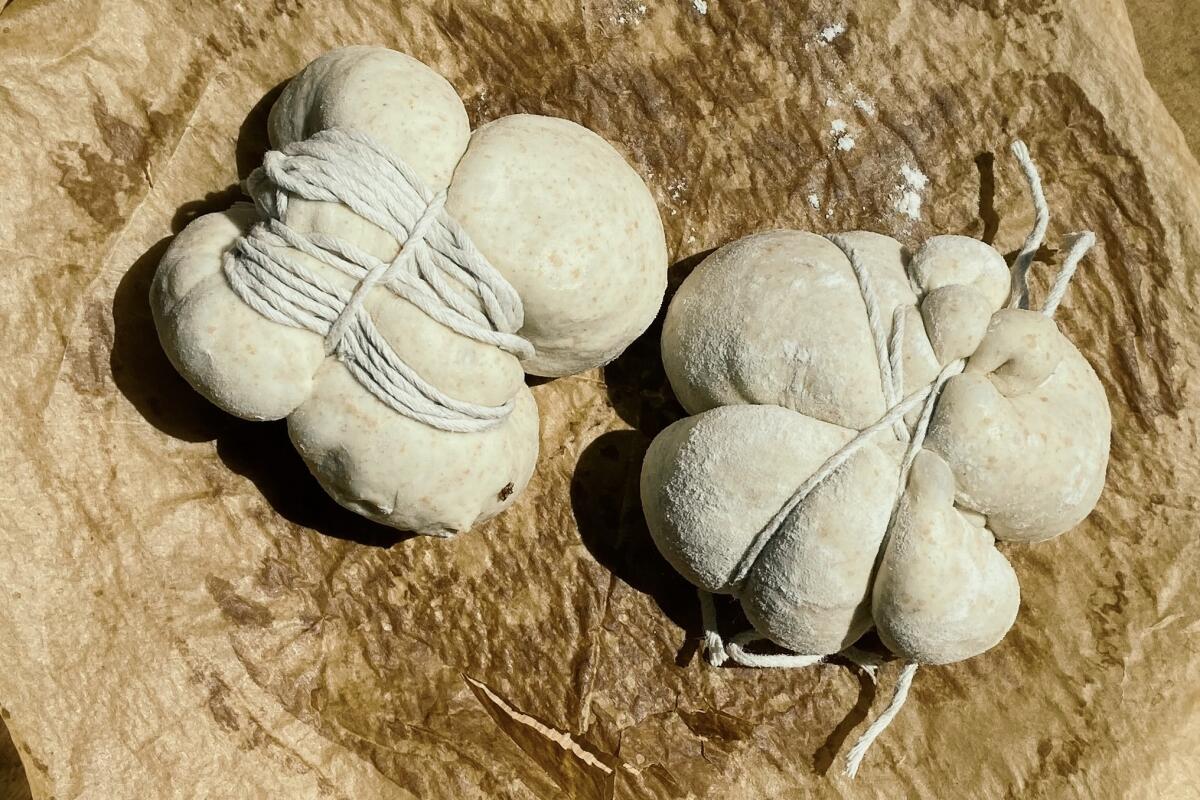
The Brick, ‘Life on Earth: Art and Ecofeminism’
The term “ecofeminism” was coined in 1974 by French writer Françoise d’Eaubonne to describe the intersection of feminism and the environment. It has played a role in political ideology and art-making ever since. “Life on Earth” explores the impact of feminist activism and theory in opposition to the exploitation of the natural world via a group show featuring 35 international artists working across media.
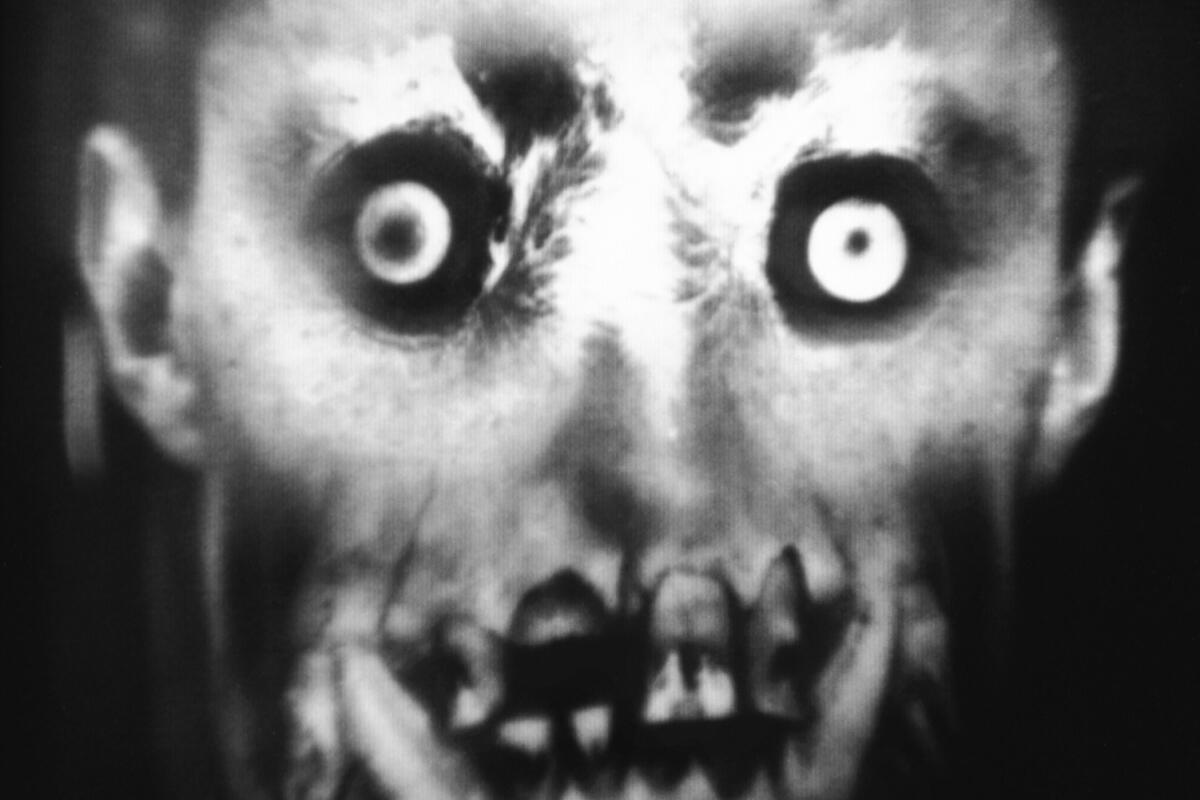
Wende Museum, ‘Counter/Surveillance: Control, Privacy, Agency’
The surveillance state stretches back to the Cold War, which helped give rise to modern surveillance techniques, devices and practices. Facial recognition became computerized in the 1960s and today takes on striking power with the rise of AI. Other tools harnessed for control include forensic portraiture and fingerprinting, as well as tiny cameras and listening devices. These technologies were used to keep tabs on activists, dissidents and others perceived to threaten the state, including artists. How those artists responded to the surveillance state is examined in this exhibit, along with a bird’s-eye view of the Cold War-era practices used by authoritarian regimes. Historical artifacts and artworks will be on display, including facial recognition training materials distributed to East German border guards in the 1970s and ’80s.
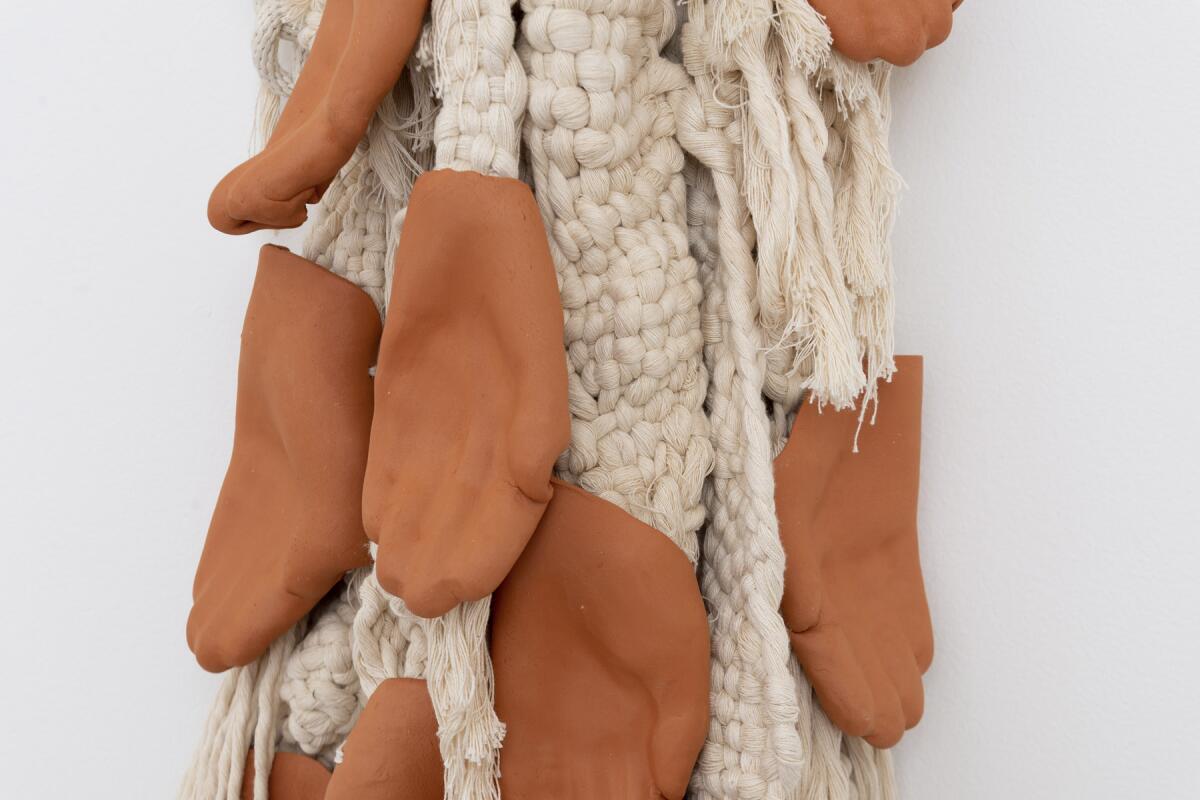
Fowler Museum at UCLA, ‘Sangre de Nopal/Blood of the Nopal: Tanya Aguiñiga and Porfirio Gutiérrez in Conversation’
The wisdom and beauty of Indigenous Oaxacan culture is on view through the work of contemporary textile artists Tanya Aguiñiga and Porfirio Gutiérrez, done in collaboration with Gutiérrez’s family in Teotitlán del Valle and Indigenous Mixteca immigrant women farmworkers. The Fowler’s exhibition features large-scale work from both artists alongside historical objects from the museum’s collections. A companion exhibition at the Museum of Contemporary Art Santa Barbara will feature the pair’s work, as well as artists such as Wendy Cabrera Rubio, Tania Candiani, and Edgar Jahir Trujillo. Through two- and three-dimensional textiles, performance and video, “Sangre de Nopal” tackles sociopolitical issues that bridge the U.S. and Mexican borders. See the Indigenous Mexican use of cochineal, a vibrant red dye derived from a silver insect that feeds on the nopal. At the Fowler, contribute to an expanding tapestry at special weaving stations. A second “Sangre de Nopal” show opens Oct. 6 at the Museum of Contemporary Art, Santa Barbara.
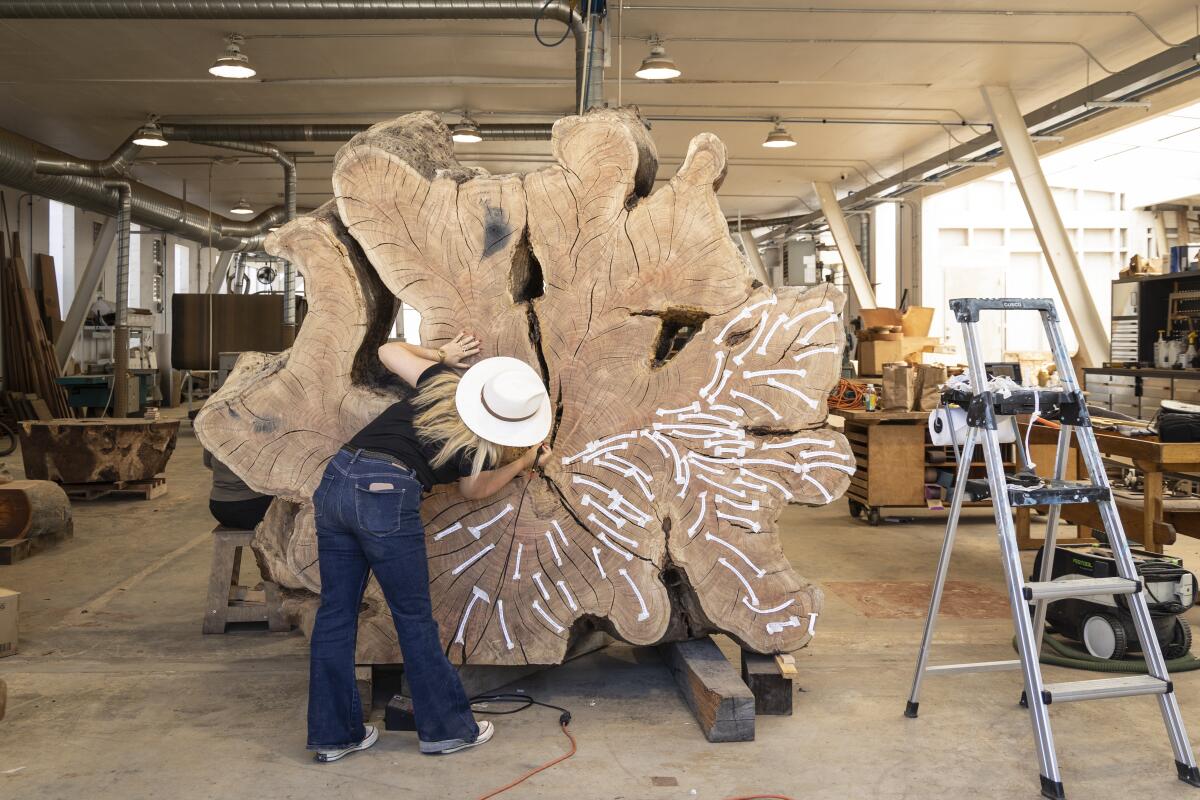
Skirball Cultural Center, ‘Ancient Wisdom for a Future Ecology: Trees, Time, and Technology’
Artists Ken Goldberg and Tiffany Shlain harness the beauty and power of trees through tree-ring sculptures — two of which are inscribed with milestones in L.A. history. Visitors can also pay homage to the special trees in their lives by submitting information online, which will be turned into tributes by the artists using AI.
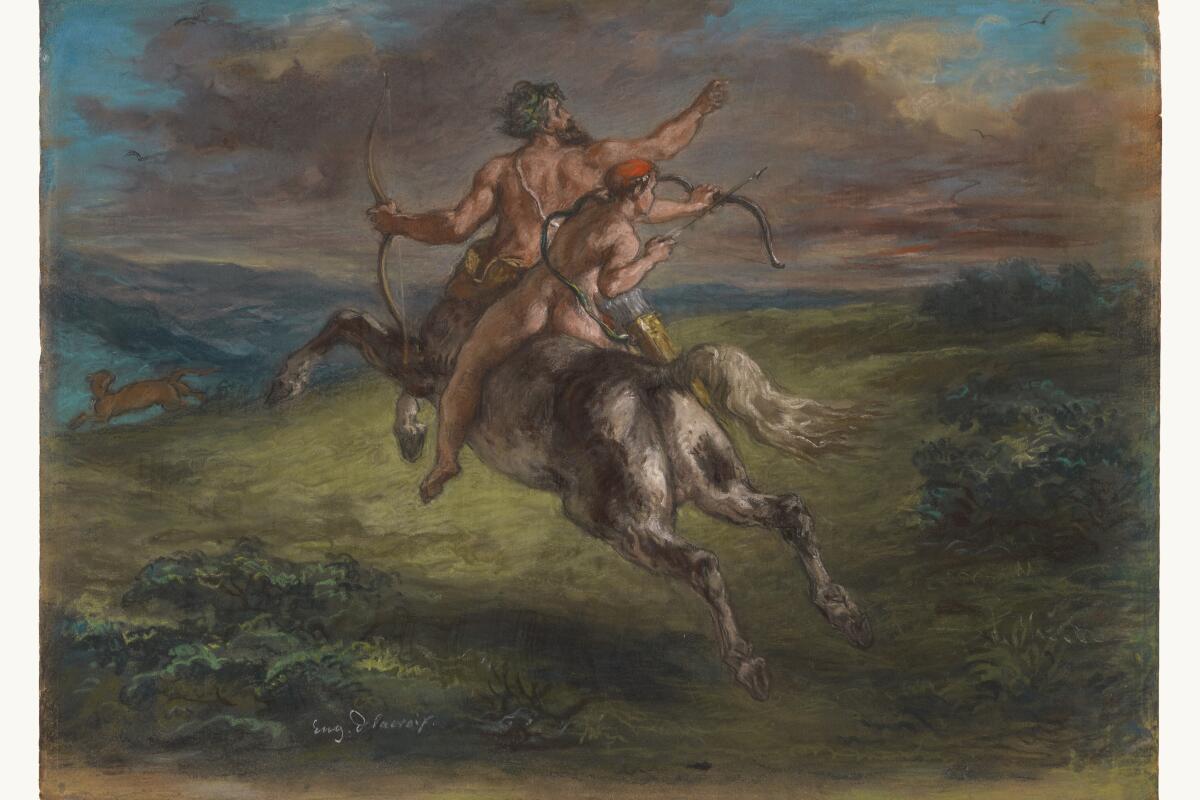
Getty Center, ‘Paper and Light’
The title of this show says it all. It’s an exploration of the surprising and innovative ways these two media have been used together to create art. Work from the Getty Museum’s extensive collection will be on display, including pieces by Delacroix, Manet, Seurat and Tiepolo, as well as those of contemporary artists such as Vija Celmins. Of particular note is a 12-foot-long transparency by French painter, architect and set designer Louis Carrogis Carmontelle. When lighted from behind — as Carmontelle intended — it can be seen as an 18th-century moving picture.
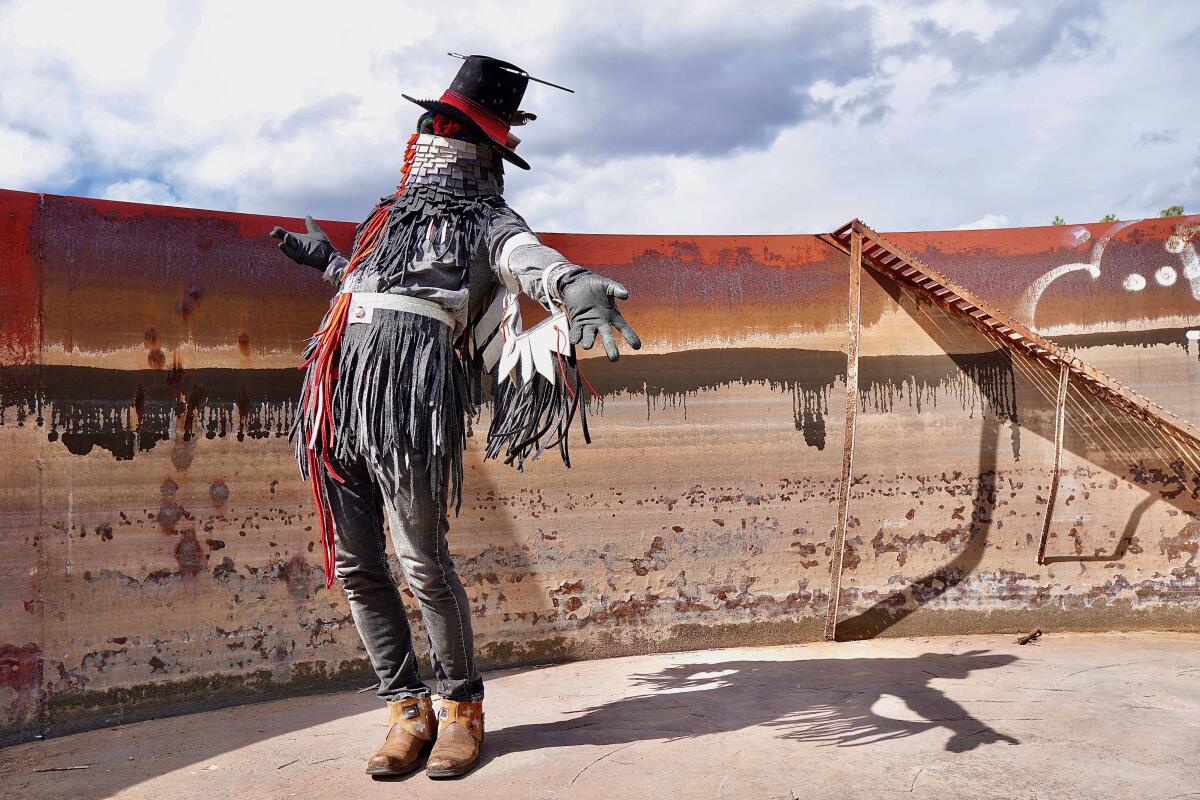
Autry Museum of the American West, ‘Future Imaginaries: Indigenous Art, Fashion, Technology’
Featuring more than 50 pieces of art — some placed in unexpected locations within the museum — this expansive exhibition examines the current pivot toward futurism in the practice of Indigenous art. The movement’s genesis is manifold, partly as a way to reckon with the harms of colonialism, but also to imagine a more just, diverse and sustainable future through the use of Indigenous technologies. Artists featured include Andy Everson, Ryan Singer, Neal Ambrose-Smith and Wendy Red Star. A site-specific installation by Cochiti Pueblo artist Virgil Ortiz, titled “Revolt 1680/2180,” is a modern retelling of the 17th century Pueblo revolt against Spanish colonizers.
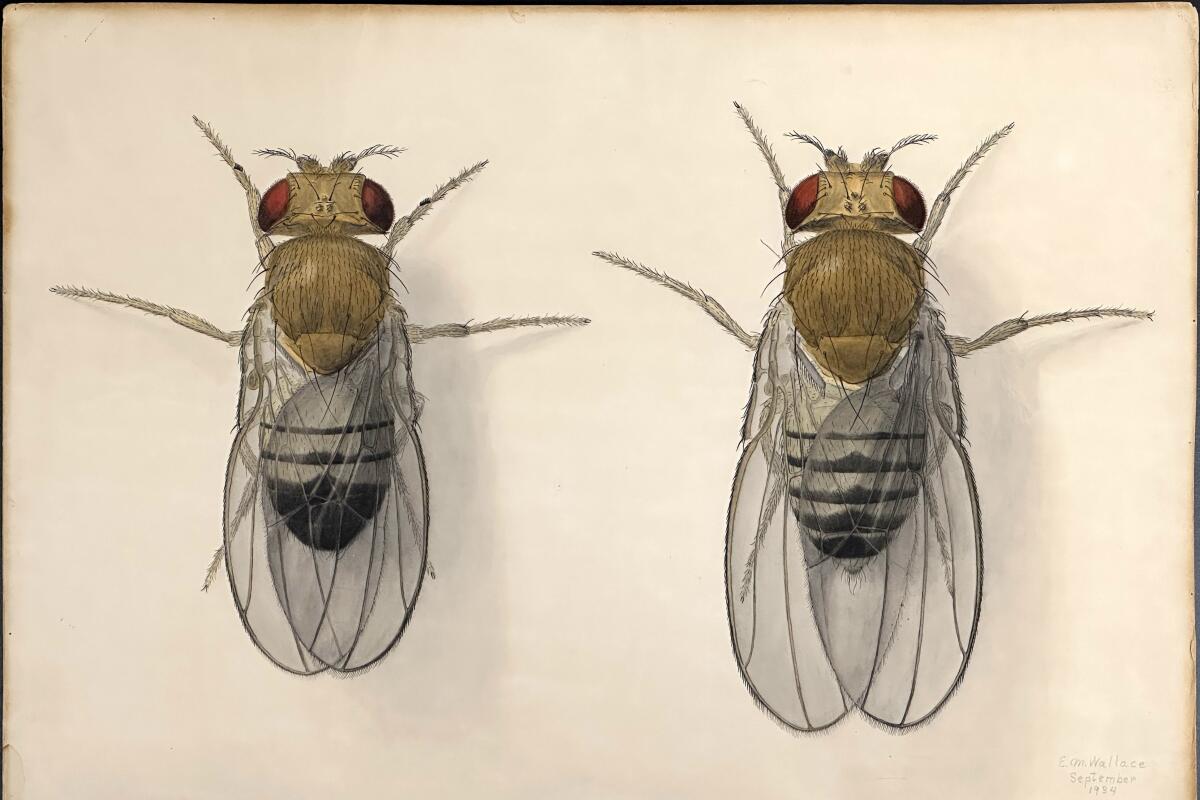
Caltech, ‘Crossing Over: Art and Science at Caltech, 1920–2020’
Enjoy the Caltech campus and its art collections across six indoor and outdoor venues. Much of the material has rarely been seen by the public, including scientific drawings and instruments, molecular models, paintings and films. A variety of rare books detailing the history of the institution will also be on view, along with some that delve into the creation of NASA’s Jet Propulsion Laboratory, which the university manages. The exhibit features three thematic sections — “The Infinite Lawn,” “Time Stream” and “Powers of Ten” — each designed to explore a different aspect of the universe, from the cosmos to atoms.
Kidspace Children's Museum, ‘Wired for Wonder: A Multisensory Maze’
Kidspace Children’s Museum, Pasadena
This interactive maze for children and adults alike uses color, light, movement, texture, vibration and smell to immerse participants fully in a world of the senses — and to reclaim the joy of free play and unstructured exploration.
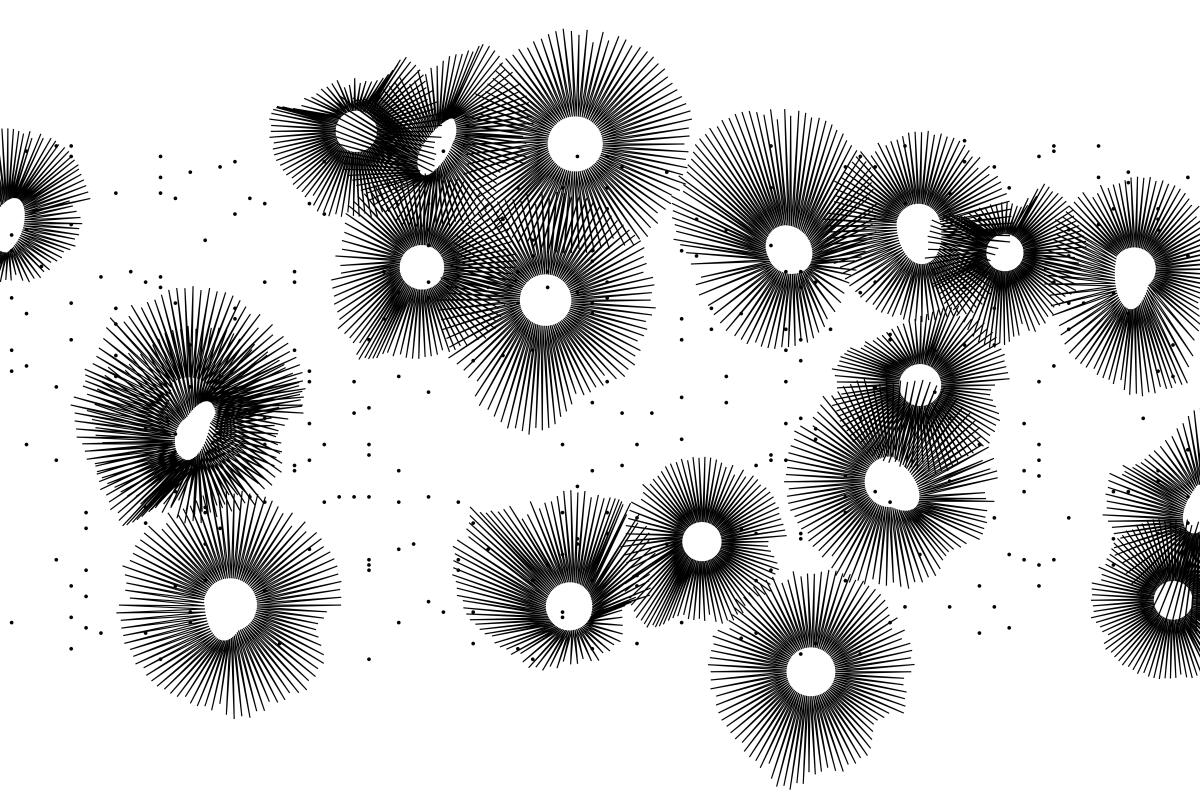
ArtCenter's Alyce de Roulet Williamson Gallery, ‘Seeing the Unseeable: Data, Design, Art’
Big Data has become so omnipresent that it has become like water to fish: everywhere and invisible. This exhibition brings together works from the last 20 years by 16 artists and designers who have used data as a springboard for creative expression and critiques of modern life. See how crochet can simulate coral reefs or how wind patterns across the country can birth a captivating print. Learn who or what else is missing from the world’s massive data collection efforts.
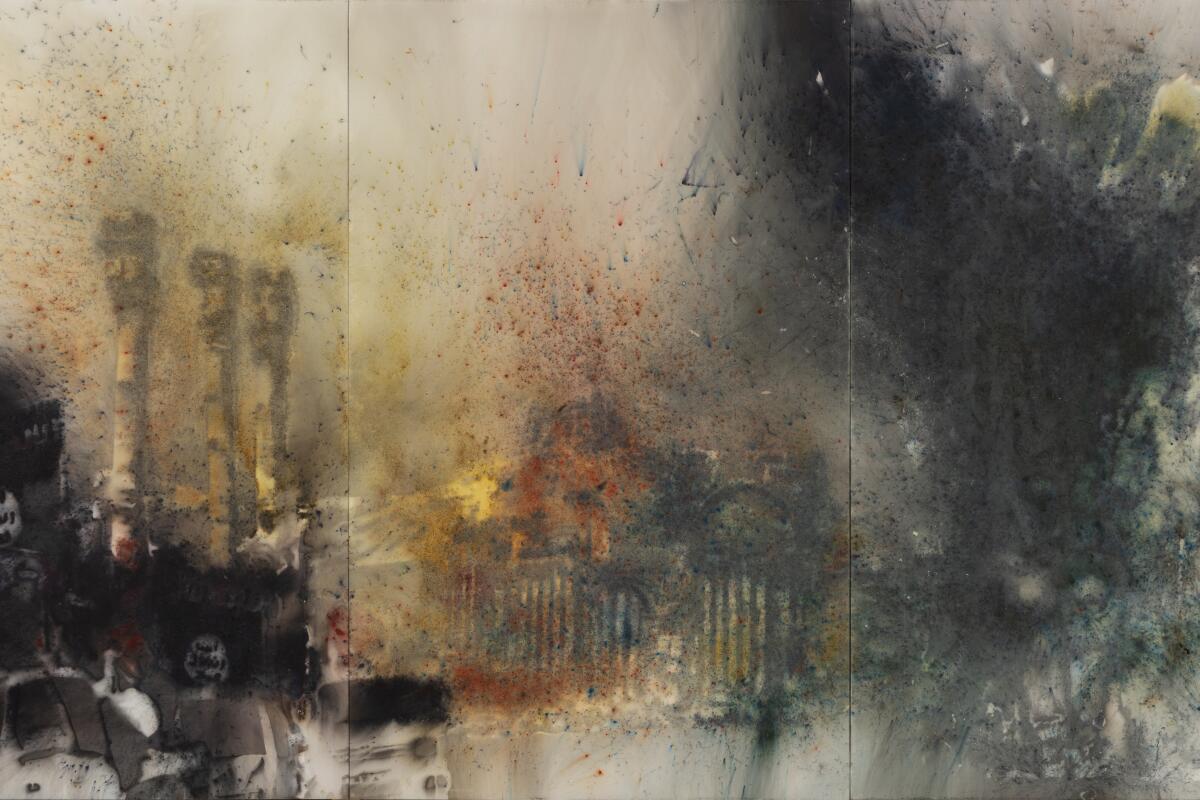
USC Pacific Asia Museum, ‘Cai Guo-Qiang: A Material Odyssey’
Chinese artist Cai Guo-Qiang is renowned for his explosive work with gunpowder. His massive daytime fireworks display will inaugurate PST Art at the Los Angeles Memorial Coliseum on Sept. 15, and an exhibition devoted to his practice and use of gunpowder will open to the public two days later. Cai uses pyrotechnics from the volatile material to create paintings, drawings and ecologically conscious explosion events. His practice, including the ways he harnesses gunpowder to create epic works, will be explored in depth.
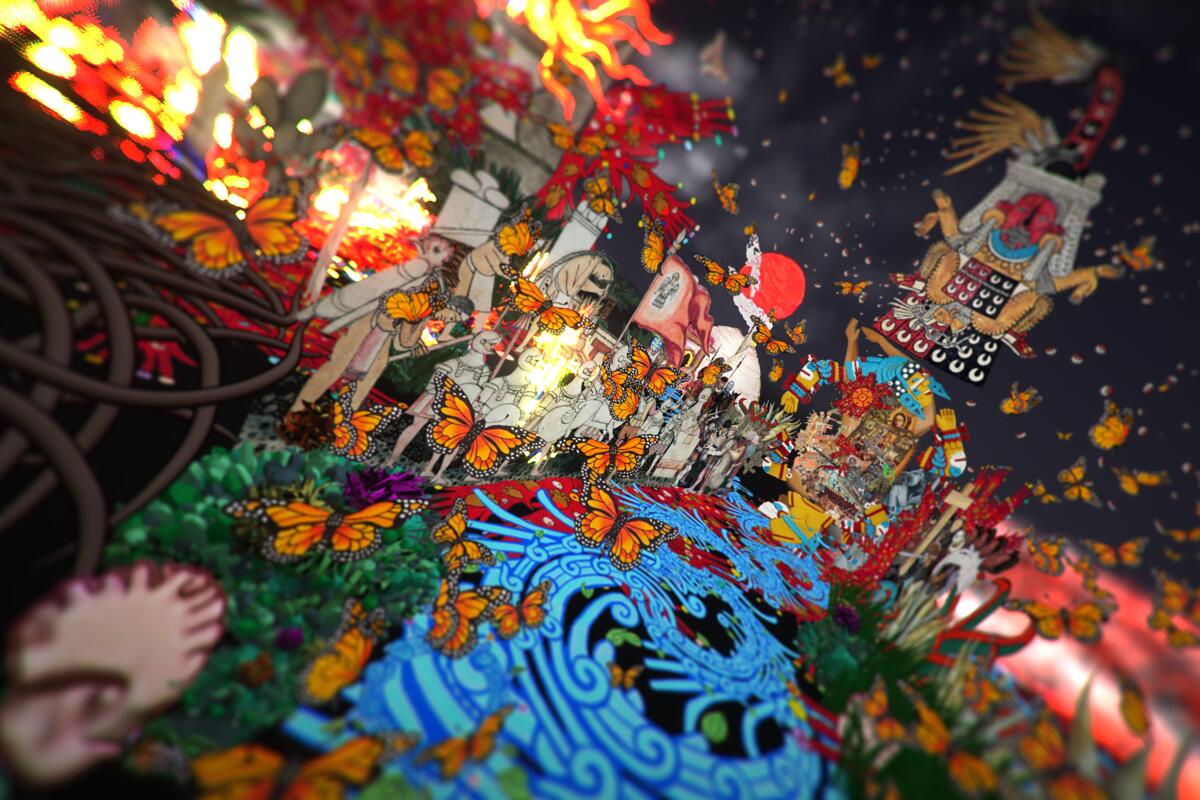
UCR Arts, ’Digital Capture: Southern California and the Pixel-Based Image World’
The world today is powered by pixels, whether a viral image or a top-security satellite photo. “Digital Capture” explores digital imaging technology’s Southern California origins and subsequent flourishing through the work of more than 40 artists active in technology, computing and imaging, inspiring questions about the environmental fallout of technological advances. Featured artists working with AI include Refik Anadol, Trevor Paglen and micha cárdenas. Visitors get a chance to interact with now-obsolete software and hardware from as far back as the late ’80s.
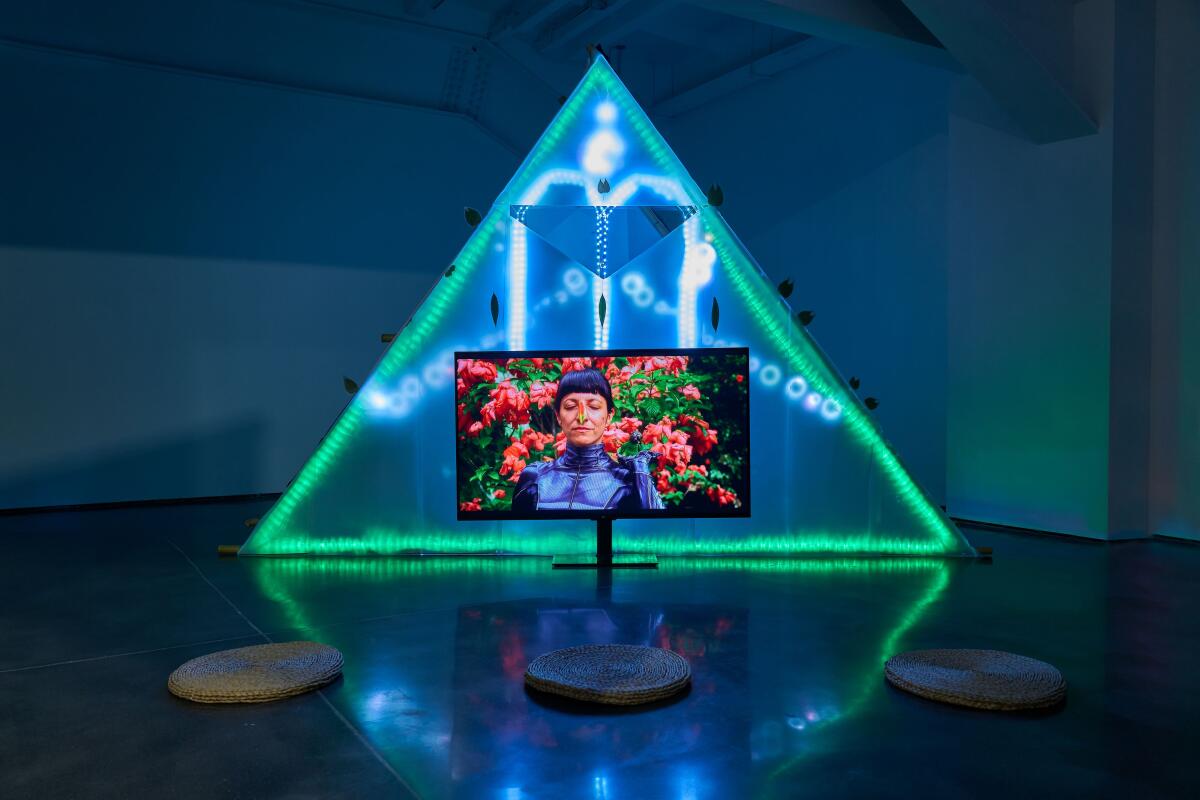
Museum of Latin American Art, ‘Arteonica*: Art, Science, and Technology in Latin America Today’
A fascinating look at the convergence of art and electronics that gave rise to a relatively obscure art movement in Latin America. The exhibit draws from the work of seminal Brazilian computer artist Waldemar Cordeiro, whose 1971 show “Arteônica” examined the computer as a tool for positive change. Throughout political and social convulsions in the region during the 1970s and ’80s, a variety of artists expanded on Cordeiro’s ideas. Their works will be shown with those of modern thinkers and creators from Argentina, Brazil, Chile, Mexico and Peru.
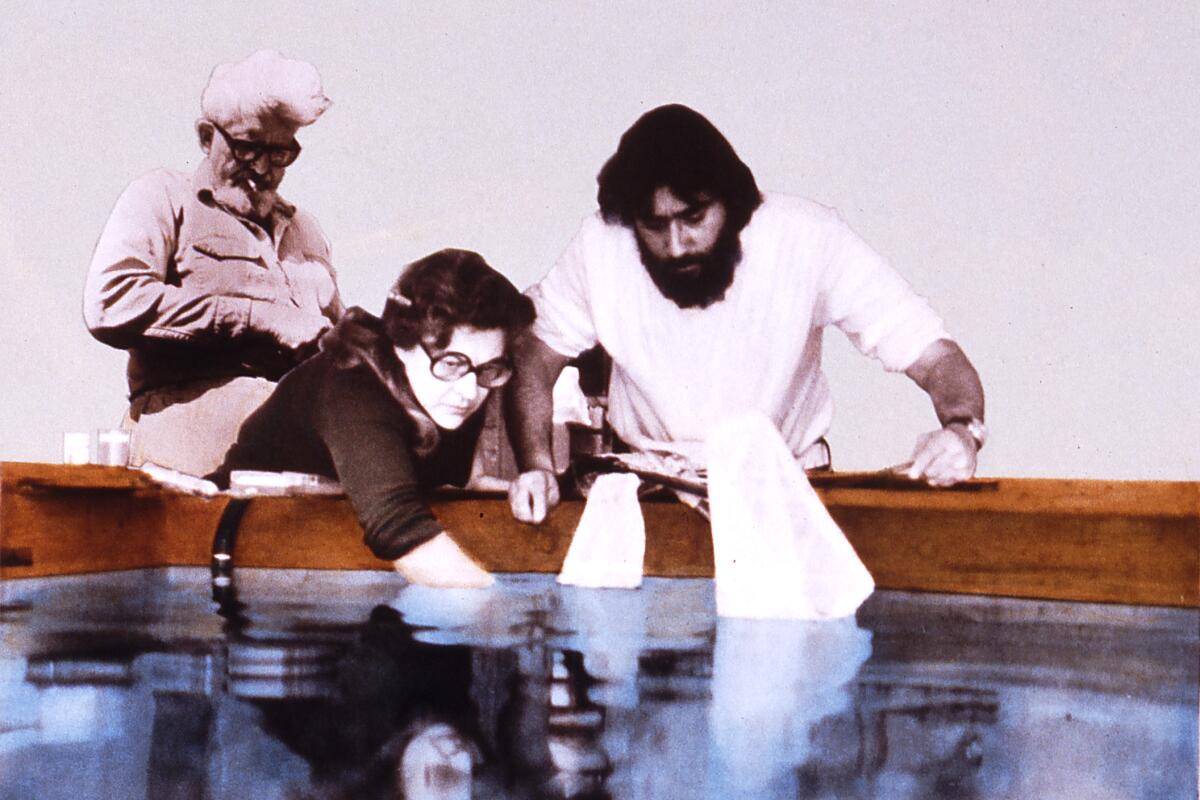
La Jolla Historical Society, ‘Helen and Newton Harrison: California Work’
A husband-and-wife team often called the “grandparents of ecological art,” Helen Mayer and Newton Harrison created conceptual art that pushed people to think deeply about how large-scale systems affect human life. This exhibition is at the La Jolla Historical Society as well as the San Diego Public Library Gallery and the Mandeville Art Gallery at UC San Diego. The couple’s foundational work, “Lagoon Cycle,” will be shown at the California Center for the Arts in Escondido. The 360-degree photo mural acquired by the Pompidou depicts seven lagoons through 60 images from Uppuveli, Sri Lanka, to the Colorado River lagoons to the Pacific.
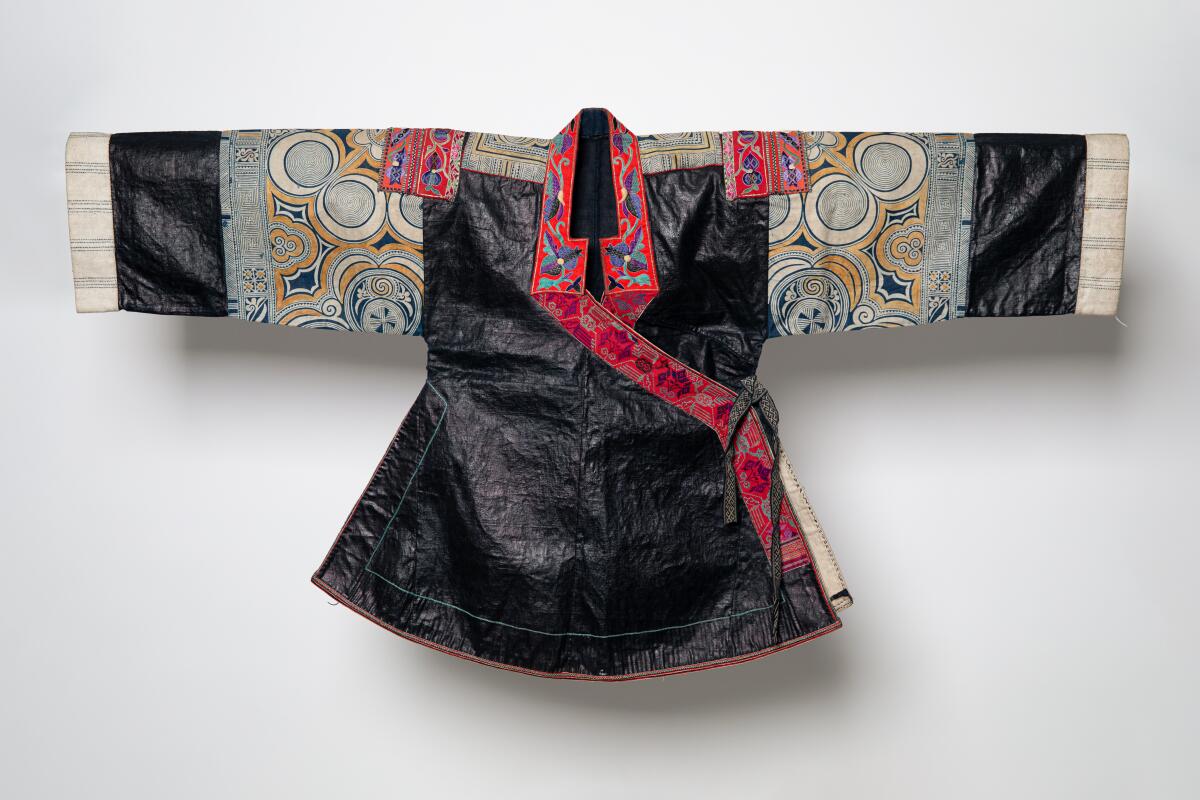
Mingei International Museum, ‘Blue Gold: The Art and Science of Indigo’
“Blue Gold” explores how a hue can mean so much. The exhibition looks at the cultivation, use and distribution of the indigo plant family, from Japanese kimonos to Levi’s 501 jeans, and opens conversations about labor, pollution and colonialist histories that have made its propagation possible. “Blue Gold” also includes sessions and artist talks by local artists and textile artisan Porfirio Gutiérrez, as well as dyeing workshops with Sarah Winston.
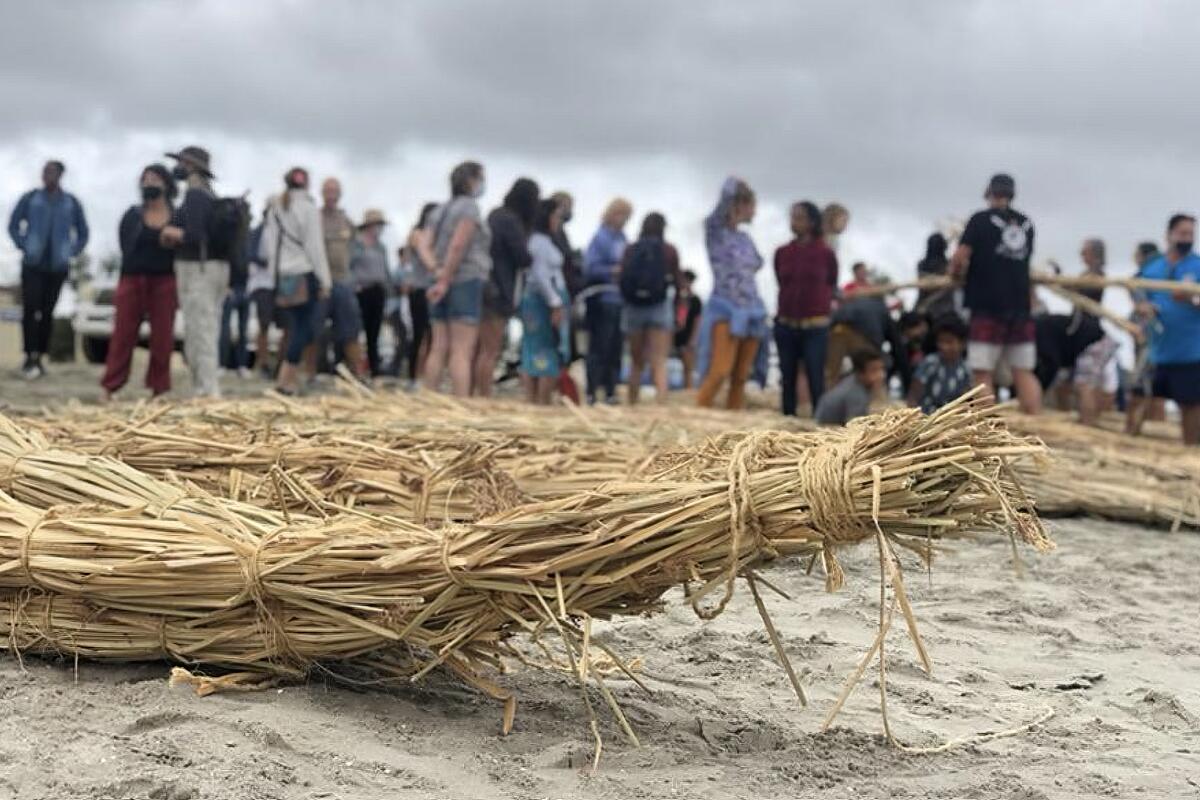
UC San Diego, ‘Embodied Pacific’
Indigenous wisdom is everywhere, including the oceans. The ambitious work of more than 30 artists working in concert with Indigenous communities in Southern California and Pacific Islands, as well as scientists from Scripps and other laboratories, is on display throughout six venues. Deep dive into Kumeyaay culture, engineering and botany through the ha kwaiyo, tule canoes used throughout Southern California waterways for millennia, and the way-finding and boat-building knowledge of the Polynesians of Taumako on the Solomon Islands. Ha kwaiyo workshops teach how to make these traditional vessels made solely of tule reeds. An iPhone app, Our Worlds, brings Indigenous design and stories into the physical world using AR, XR and VR technology.
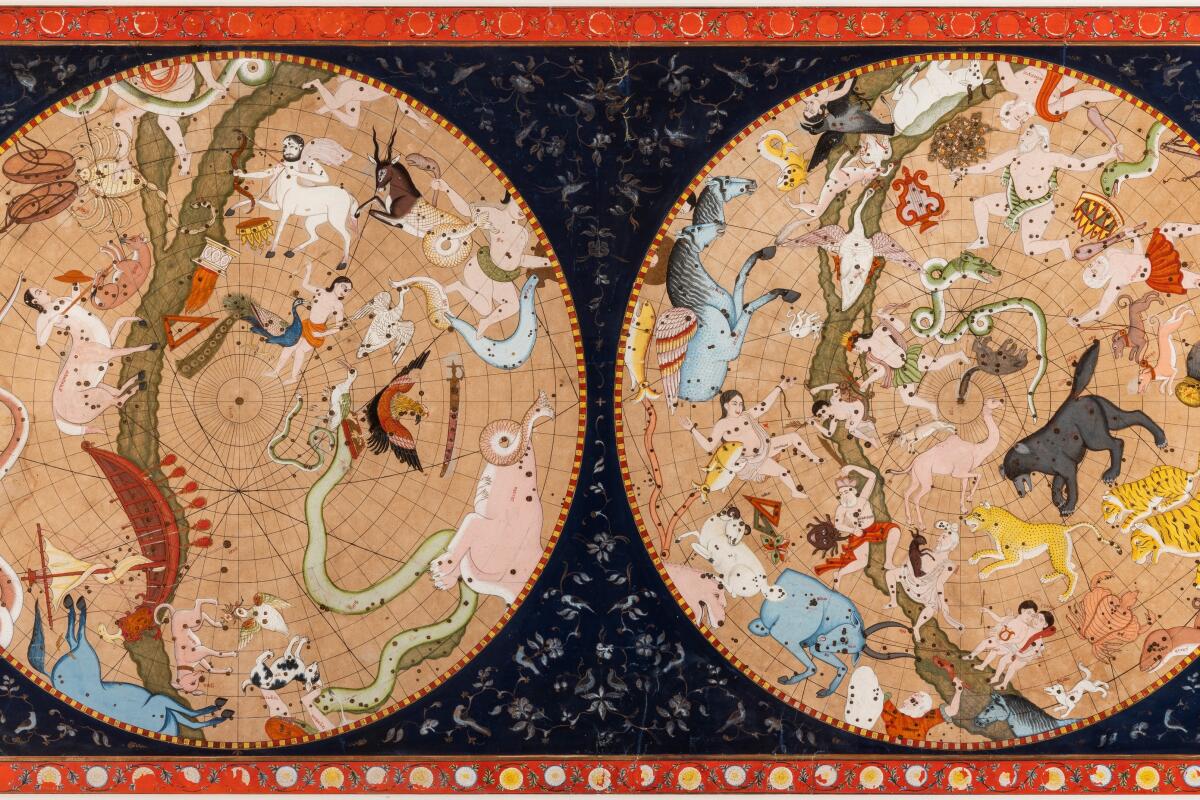
San Diego Museum of Art, ‘Wonders of Creation: Art, Science, and Innovation in the Islamic World’
Inspired by a 13th century Islamic text on the wonders of the universe, the San Diego Museum of Art gathers more than 200 works spanning 13 centuries, from manuscripts, scientific instruments, magic bowls, architectural objects and art. Contemporary artworks accompany aged objects, such as Issam Kourbaj’s delicate boats made of repurposed mudguards and burned matches that hark to the refugee crisis playing out over waterways, and Timo Nasseri’s kaleidoscopic installation of mirrors, “Florenz-Bagdad.”
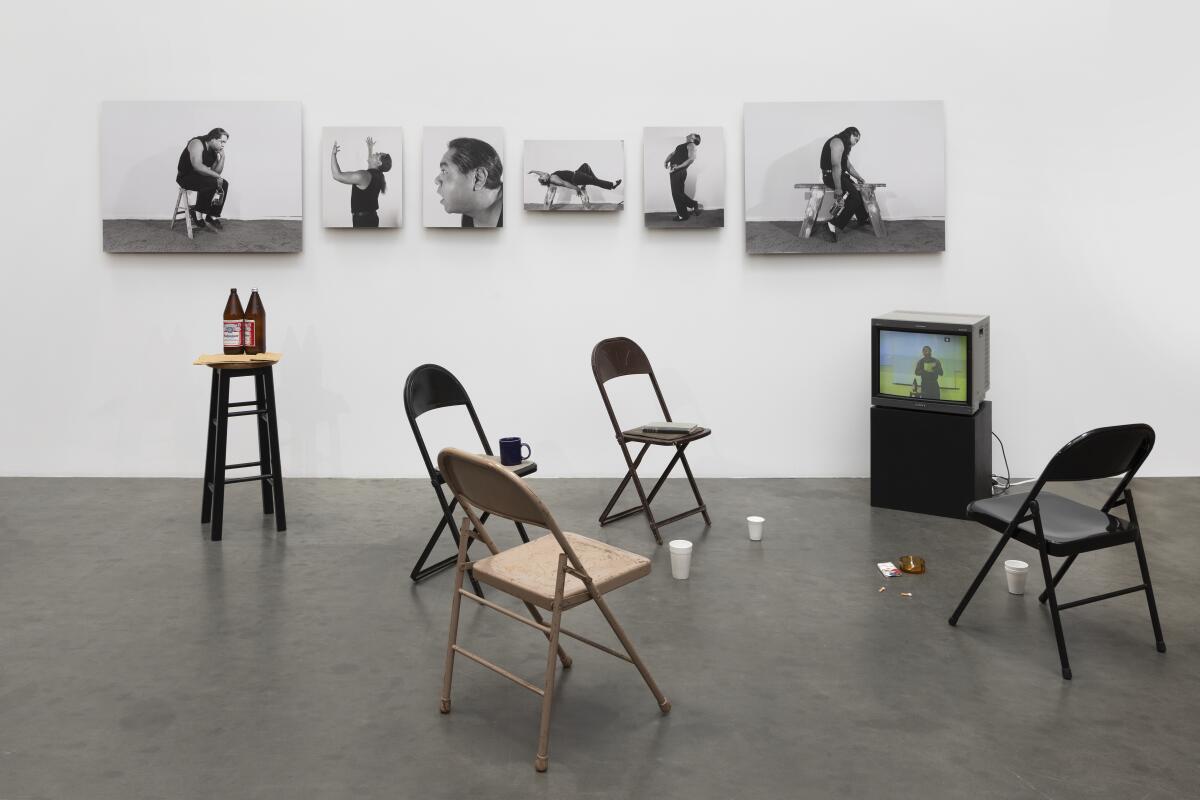
Museum of Contemporary Art San Diego, ‘For Dear Life: Art, Medicine, and Disability’
The museum brings together the work of more than 80 artists exploring creative responses to health and medical issues dating to the 1960s: the Vietnam War, the HIV/AIDS epidemic, the Americans with Disabilities Act and more. Catch Rina Banerjee’s “Contagious Migrations,” which pulls together Silly Putty, rubber gloves and a plethora of found materials to form a surprisingly delicate sculpture that critiques Western responses to AIDS. Step into the museum’s elevator, which will be wrapped in Catherine Wagner’s photographs of university lab freezers housing Human Genome Project tissue samples.
The biggest entertainment stories
Get our big stories about Hollywood, film, television, music, arts, culture and more right in your inbox as soon as they publish.
You may occasionally receive promotional content from the Los Angeles Times.

